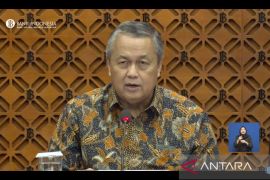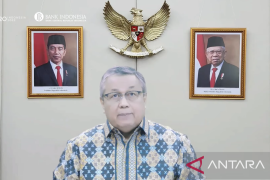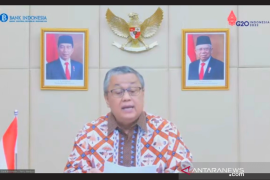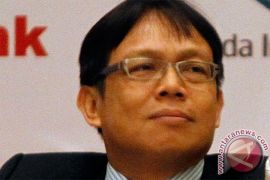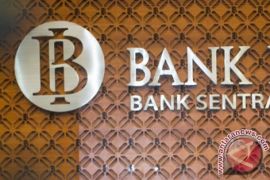BI has set the target of inflation rate for 2012 and 2013 at 3.5-5.5 percent respectively. According to BI, the country`s inflation rate eased to 3.79 percent in 2011 from 6.96 percent in 2010.Jakarta (ANTARA News) - Bank Indonesia (the central bank/BI) at its meeting of board of governors on Thursday decided to maintain its key rate, known as BI rate, at 6 percent arguing it is still relevant to the inflation target.
"Bank Indonesia decided to keep BI rate at a level of 6 percent because it is still relevant to the inflation target as well as the effort to stabilize the financial system in support of domestic economic expansion," BI Governor Darmin Nasution said at a press conference following the meeting.
BI has set the target of inflation rate for 2012 and 2013 at 3.5-5.5 percent respectively. According to BI, the country`s inflation rate eased to 3.79 percent in 2011 from 6.96 percent in 2010.
"The inflation rate resulted from the relatively stable core inflation, low food stuff inflation and administered price inflation; core inflation related to monetary policy and exchange rate, imported goods inflation and inflation expectation, while energy subsidy had an impact on low administered price inflation," he said.
Commenting on the government`s plan to limit the use of subsidized premium gasoline as of April 2012, he said the plan, if realized, would only contribute 0.72-0.94 percent to the inflation rate.
"The switch from subsidized premium to non-subsidized pertamax gasoline is expected to only contribute 0.72-0.94 percent to the inflation rate, or 50-50 basis points lower than the BI rate," he said.
He said BI`s future policies would be strengthening the combination of monetary and macro-prudential policies which would come in the form of counter-cyclical policies.
"Counter-cyclical means that the country makes a policy to counter the potential economic cycle. We predict the global economy will continue to slow down, along with the lingering European crisis, namely stagnant consumption in advanced countries, tight liquidity in the financial market with rising risks and a downward trend in international commodity prices," he said.
He said BI`s decision to keep its key rate at 6 percent for the second month in a row last December was an example of counter-cyclical policy to keep down interest rate which would in the end boost economic growth.(*)
Editor: Heru Purwanto
Copyright © ANTARA 2012

